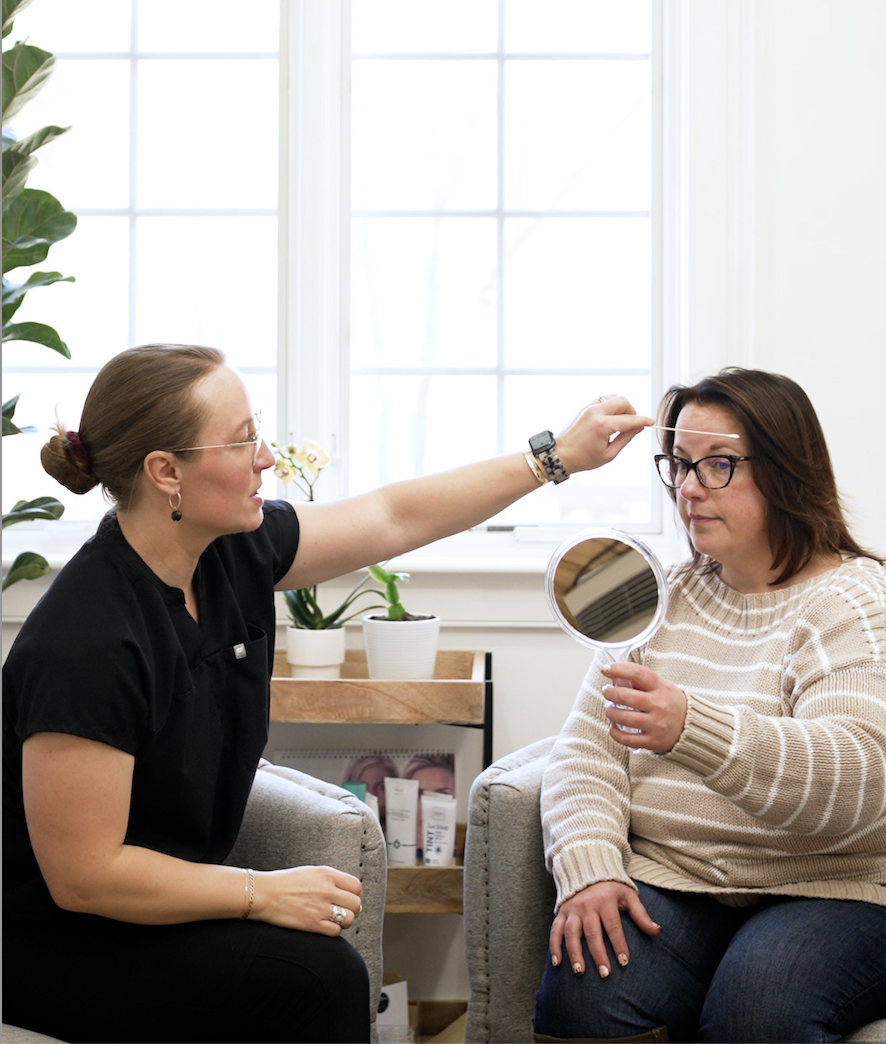



Nothing gets me quite fired up like a healthcare professional using actual research, but putting such a twist on it that the data is unrecognizable in their claims. Dr Rimka, a dermatologist with 160,000 followers on Instagram (and products like skincare and supplements she wants you to buy) recently posted a video saying that research shows “Botox kills the empathy center in your brain.” This is patently false, but it’s related to a kernel of truth.
The research I think she’s referring to (because she failed to cite it in her post) is great research that I think about every single time I do a botulinum toxin (Botox, Xeomin, Dysport, Jeuveau, Daxxify) treatment. This research describes cells in our brains called mirror neurons, which cause us to make facial expressions that match the way we interpret another person's feelings.
These cells are why when you’re trying to get through your Bedford Market Basket run, and your toddler trips and bangs his knee, you make an “awww, I’m so sorry!” face even though you’re in a hurry. You might furrow your brow, the corners of your mouth might turn down in a frown, your shoulders might slump. These movements, even small ones called ‘microexpressions,’ communicate important information to your toddler: he is not alone, his feelings are reasonable, and you are a safe place for him to be vulnerable.
This is why I am a proponent of conservative treatments with botulinum toxins. I want to preserve your ability to make microexpressions so that you can communicate emotional safety to your friends and family. In fact, this is a conversation I have during consultations with any patient who has small children in their life. Small children need our microexpressions in order to develop healthy attachments and relationships. I treat many teachers in the Amherst and Souhegan districts, and for all our kids’ sakes, I keep them looking natural, too.
Now, you might be wondering, “what does this have to do with ‘Botox kills the empathy center in your brain’???” Nothing. She’s using the research to forward her own goals. By phrasing her conclusion that way, she suggests to the lay person that botulinum toxins actually go into your brain and kill cells. They do not. She’s also suggesting that any dose in any place will have the same effect. It will not. You and I design your treatment for your unique face and social situation to have the desired effect without muting your nonverbal communication.
Let’s take the conversation one step further. How might treatment with botulinum toxins actually improve your relationships? I cannot tell you the number of women I see on a regular basis whose husbands are living within an inch of their lives because they constantly comment on how grumpy their partner looks, when she’s just going about her day. This can be because of frown lines between the eyebrows, or because of muscle tension around the mouth creating a pursed expression.
And most importantly, if your self confidence takes a hit when you look in the mirror every morning, it can affect every area of your life. Work, relationships, fitness, diet, can all be negatively impacted by poor self esteem. For many, a little bit of Botox goes a long way to helping them feel confident, relaxed, and positive about every other area of their lives. I’ve seen many women go from a little bit of Botox to a new boyfriend, or a job promotion. Of course, it’s not the Botox causing those things (saying that would be akin to Dr Rimka’s outlandish claim), it’s the improvement in self esteem and confidence.
Finally, I’d be remiss not to mention more research which shows treatment with botulinum toxins is as effective as medications at treating depression. That’s a big deal! (FYI dancing is more effective than both, so make sure you do that every day, especially with the rates of seasonal depression we see in southern New Hampshire!)
What crazy claims have you heard about Botox on the internet? There are a lot of them. If you’re wondering if treatment is right for you, remember consultations are free, and your safety and quality of life are my primary goals. I will not recommend treatment unless I truly believe it can help you.


